Post Traumatic Stress Disorder (PTSD)
-
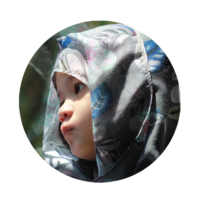
Post Traumatic Stress Disorder (PTSD)
Not all children who experience trauma develop PTSD, it is important to understand how to identify the more vulnerable children in order to provide adequate support and treatment.
Read more -

December 2019 The Bridge Editorial
It has been 2 years since The Bridge was relaunched in its current form. Each monthly themed edition publishes summaries of selected papers from the ACAMH journals – JCPP and CAMH – and occasionally features guest research digests. Over the past two years we have covered a huge range of topics and published over 170 research summaries and counting.
Read more -

Supportive counselling is ineffective for managing PTSD in youth
More than half of children and young people are exposed to potentially traumatic events,and a significant minority of those exposed go on to develop post-traumatic stress disorder (PTSD). Because PTSD can be chronic, it can have a notable impact on child development, as well as social, academic and occupational function – it is therefore imperative that effective treatments are identified and prioritized.
Read more -

Cognitive processes mediate the post-traumatic stress trajectory in adolescents
A new study has shown that cognitive processes shape the early reactions of children and adolescents to traumatic stressors, and mediate the transition to persistent and clinically significant post-traumatic stress symptoms (PTSS).
Read more -
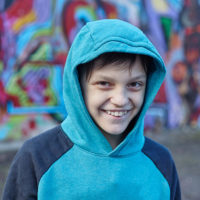
Practitioner recommendations for PTSD: a 2018 update
In 2018, Patrick Smith, Tim Dalgleish and Richard Meiser-Stedman compiled a Practitioner Review for the Journal of Child Psychology and Psychiatry on post-traumatic stress disorder (PTSD) and its treatment in children and adolescents. In their report, the researchers provide updates on the estimated rates of trauma exposure, and the incidence and course of PTSD in children.
Read more -
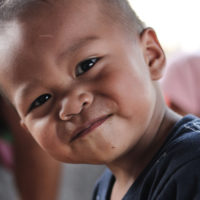
Eye movement desensitization and reprocessing improves PTSD symptoms in children
Practice guidelines for childhood post-traumatic stress disorder (PTSD) recommend trauma-focused psychological therapies as the first-line treatment. The primary approach is trauma-focused cognitive behavioural therapies, which have a large evidence base.
Read more -

Foster care promotes adaptive functioning in early adolescence among children who experienced severe, early deprivation.
Experiences in our early life can have long-term consequences on development. Children who have experienced severe deprivation, in the form of institutional care (orphanages), are at greater risk to experience a range of social, emotional, and cognitive difficulties. In fact, much of the research tracing long-term consequences of early adversity have come from a deficit model (i.e., “what goes wrong for those with negative experiences”).
Read more -

Early cognitive therapy for traumatised young people works and is also cost-effective
More than half of children and adolescents will experience traumatic events like vehicle accidents, house fires, or violence. However, brief counselling for young people in the immediate aftermath of an acute traumatic event has not be shown to be any more effective than not intervening and allowing natural recovery to take its course.
Read more -
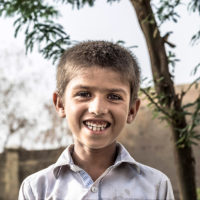
Latest evidence on mental health interventions and service response to refugee children
The latest figures indicate that in 2016 65.5 million people had to leave their homes due to war and armed conflicts, of which around one-third of are refugees who fled other countries to seek asylum.
Read more -
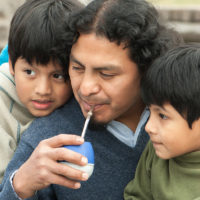
Parental responses in predicting children’s PTSD
Many children will be exposed to a potentially traumatic situation at some point in their childhood -that is, an event where there is a potential threat to life or of serious injury to the child, or to someone close to them. These events can range from common unintentional or accidental traumas, such as car accidents or serious sporting accidents, to deliberate harm, such as assault or maltreatment. Such trauma exposure can have a significant negative impact on a child’s psychological wellbeing.
Read more